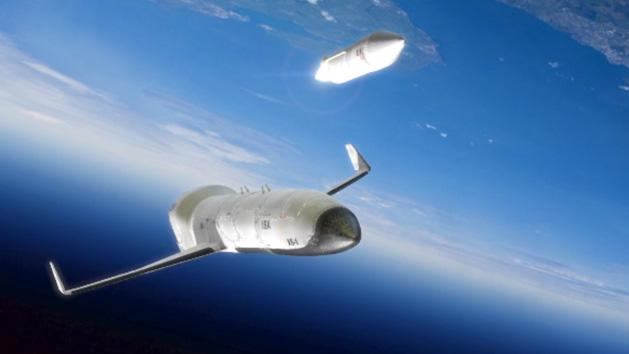xcor
Latest

DARPA picks the first companies that will work on its unmanned spaceplane
Slowly but surely, DARPA's XS-1 Experimental Spaceplane is becoming more than a bundle of nice ideas. The agency has just chosen the companies that will square off in the first phase of the unmanned craft's design program, most of which are recognizable names in the space business. Boeing is partnering with Jeff Bezos' Blue Origin on one version of the ship; Masten Space Systems is teaming up with XCOR on another, and Northrop Grumman is cooperating with Virgin Galactic. All three groups will have to submit initial designs before DARPA can move on to a second phase, so we're still far, far away from seeing an XS-1 in orbit. But hey, it's progress -- and the companies involved are skilled enough that a cheap, highly reusable spaceplane should become a practical reality.

XCOR Lynx propulsion tech tests well on motorcycle, suborbital trip still pricey
Before parting with $95,000 to secure a spot on the Lynx suborbital flight, you'd want to make sure the spacecraft was safe, right? XCOR doesn't blame you: it recently tested out its piston pump technology on a Triumph Street Triple motorcycle with great results. Sure, it's not the same as flying to the edge of space, but the Triumph has the same cylinder arrangement as the Lynx's liquid oxygen and kerosene fuel pumps and develops a similar amount of horsepower. It's also loads cheaper than testing in the laboratory. The bike took a 20-hour drive (the equivalent of 400 Lynx flights, according to XCOR) along Route 66 without the piston pump suffering any wear and tear. So if propulsion-related safety concerns -- and not the depth of your wallet -- were holding you back from nabbing a seat on the Lynx, you might feel a tad more inclined to whip out the plastic now. Head past the break for the full PR, plus a video of the piston-pumped Triumph in action.

Virgin Galactic, XCOR land suborbital contracts with NASA
Have $200,000 to spare for a ticket to space? NASA does, apparently, a few times over. Following the retirement of its Space Shuttle program, the US agency just announced two-year contracts with seven space flight companies, worth a combined $10 million. NASA will partner with Virgin Galactic, XCOR, and five other companies to bring engineers, scientists, and equipment to space, for a variety of experiments in low-gravity environments. The contract provides few financial implications for Virgin, which has already collected $55 million in deposits from future space tourists, but the company did acknowledge it as an "important milestone" in its efforts to grow beyond initial consumer offerings. Space Adventures, which serves as a low-cost carrier of sorts in the industry with its $102,000 flight, may be represented as well, through its partner Armadillo Aerospace -- so it's probably safe to assume that NASA won't be paying two large huge a pop to blast its personnel to space.

XCOR's Lynx aims to enter space tourism business in 2010
Crazy though it may be, XCOR's looming Lynx isn't the first rocket ship built to take Earthlings to outer space, but it's definitely taking a different approach than that of the SpaceShipTwo. Unveiled as the "sports car of commercial spaceflight," the smallish craft is only designed to carry two individuals (or a driver and cargo), meaning that you and your SO will have to take turns shooting up to some 61-kilometers above the ground. Reportedly, Lynx would be fueled by a kerosene / liquid oxygen mixture and could take off and land from traditional airstrips, and while it could manage several flights per day, each one is only slated to last 25 minutes. Sadly, the $64,000 (likely more, actually) question of how much this joyride will cost has yet to be answered, but optimistic minds are hoping to see test flights commence in 2010.[Via NewScientist]



